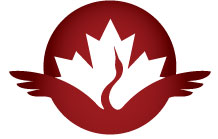Erich Weingartner first became involved in Korea in 1978. At the time he was Executive Secretary of the Commission of the Churches on International Affairs (CCIA) with special responsibility for the World Council of Churches (WCC) human rights programme. Following the assassination of South Korea’s President Park Chung-hee in 1979 and the subsequent military coup by General Chun Doo-hwan-in part justified with reference to allegations of North Korean infiltration into South Korea-a sector of the South Korean human rights movement turned their attention to the continuing confrontation between North and South Korea. Peace and reunification of Korea, it was felt, were a necessary component of the human rights struggle.
Korean churches asked the WCC to make contact with North. On his first trip to Pyongyang in 1985, Erich secured the permission of DPRK authorities for a face-to-face meeting between North and South delegations. In 1986 he arranged the first encounter since the Korean War between delegations of North and South Korean Christians in Glion, Switzerland. In the following five years, he organized three additional international meetings that included delegations from both Koreas.
In May 1997 Erich (with wife and younger daughter) moved to Pyongyang, where he worked until July 1999 as founding Head of the Food Aid Liaison Unit (FALU), an independent section of the UN World Food Programme (WFP) that programmed and monitored humanitarian assistance donated by non-governmental organizations during what has been dubbed as “the great famine”. He was the first NGO representative (and first Canadian) to achieve resident status in North Korea. During his tenure, FALU assistance topped 100,000 metric tons of food, agricultural and medical inputs, at a value exceeding 30 million US dollars. His work took him by land cruiser to all provinces of the DPRK, where he visited ports, rail yards, warehouses, nurseries, kindergartens, boarding schools, orphanages, hospitals, factories, farms, and also many families in both rural and urban homes.
A graduate of McMaster University and Waterloo Lutheran Seminary (Canada), Erich previously worked as Research Assistant at the Lutheran World Federation in Geneva, and as Deputy General Secretary of the International Documentation Centre (IDOC) in Rome. As a specialist in human rights and humanitarian assistance, Erich’s work took him to every continent, including armed conflict zones in Lebanon, El Salvador, New Caledonia, the Philippines and Bosnia.
Published works
Church Within Socialism (English and German, 1976/77)
The Wanderer (with Sang Chul Lee, 1989)
Protecting Human Rights: A Manual for Practitioners (English and Russian, 1995)
NGO Contributions to DPRK Development: Issues for Canada and the International Community (2001).
Articles, speeches and papers
“The World Church and the Search for a Just Peace”, in Canadian Churches and Foreign Policy (1990),
“Human Rights,” in Dictionary of the Ecumenical Movement (1991)
“Human Rights in the New World Order” in The Ecumenical Movement Tomorrow (1993).
Erich and Miranda also write a monthly column entitled “The Justice Agenda”.
In 2002, Erich was awarded a Human Security Research Fellowship by Canada’s Department of Foreign Affairs. His research on DPR Korean perceptions of human insecurity was carried out at York University’s Centre for International and Security Studies in Toronto.
Related Articles
- Playing Chicken at the Brink by Erich Weingartner (vtncankor.wordpress.com)
- Book Review: NOTHING TO ENVY by Barbara Demick (vtncankor.wordpress.com)




22 April 2011 at 14:02
[…] Erich Weingartner, Editor of CanKor, speaks about North Korea and the new version of The CanKor Website. This Canada-North Korea news service “aims to provide information and analysis that does not get the attention it deserves in the commercial media”. […]
25 March 2013 at 15:24
[…] this month, CanKor Editor-in-Chief Erich Weingartner was interviewed on “Russia Today”. According to its self-description, “RT is a global news […]
31 July 2013 at 22:02
[…] back into the fields — corn stalks, et cetera — are being used instead for fuel,” Erich Weingartner, who spent two years living in Pyongyang as founding Head of the World Food Programme’s Food […]
4 November 2013 at 05:56
[…] back into the fields — corn stalks, et cetera — are being used instead for fuel,” Erich Weingartner, who spent two years living in Pyongyang as founding Head of the World Food Programme’s Food […]
26 December 2019 at 01:30
[…] back into the fields — corn stalks, et cetera — are being used instead for fuel,” Erich Weingartner, who spent two years living in Pyongyang as founding Head of the World Food Programme’s Food […]